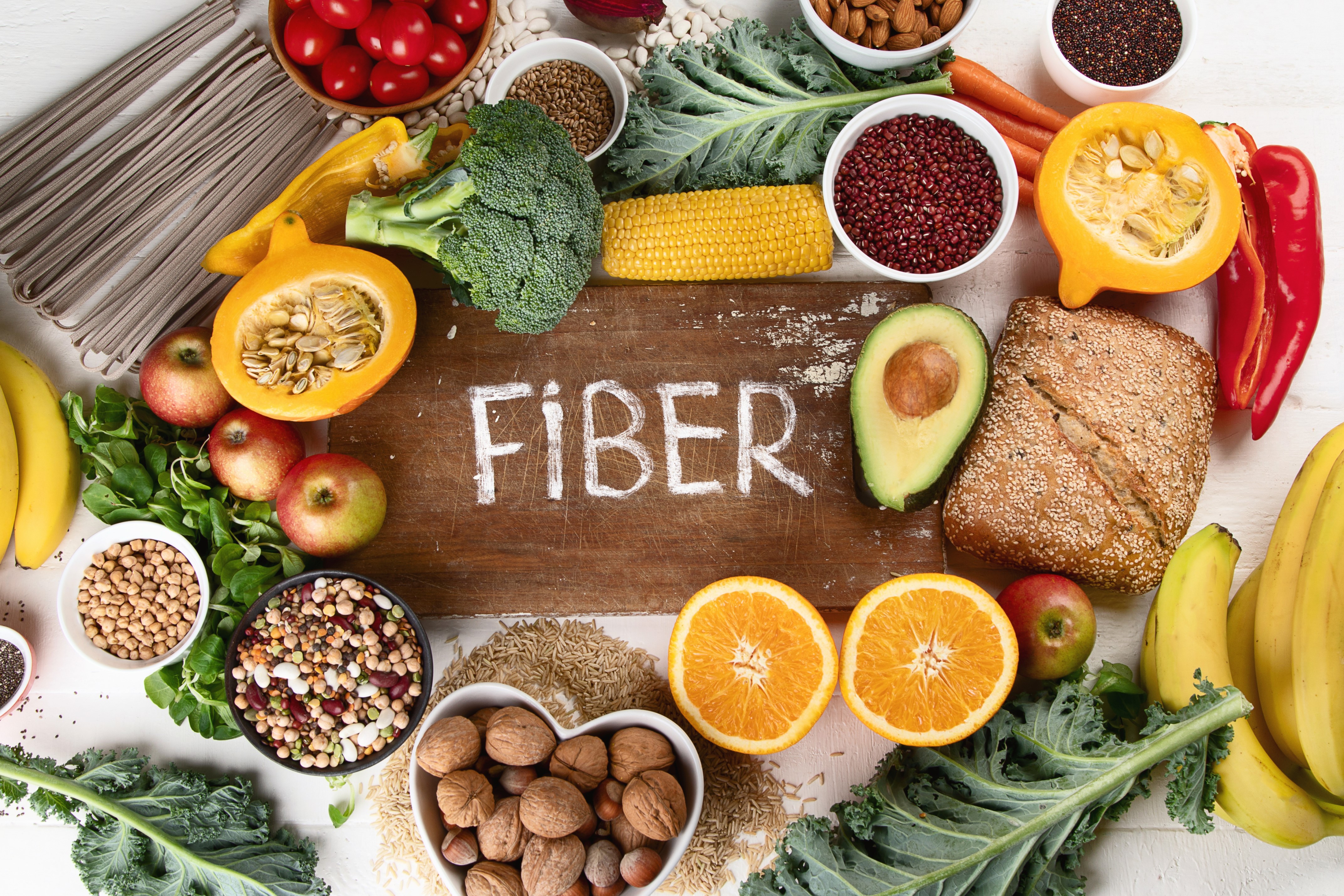Fiber is well known to be a healthy and important part of our daily diet. Fiber is cellulose, which is ‘stuff’ that plants are made of, and our dietary fiber primarily comes from fruits, vegetables, and whole grain products. Fiber helps to keep our gut microbiome happy, balanced, and running smoothly. But our eating habits are impacting our intestinal flora, and newly discovered cellulose-degrading bacteria called Ruminococcus that degrade cellulose by producing large and highly specialized extracellular protein complexes called cellulosomes are being lost from the human gut microbiome, according to recent research.
Cellulosomes attach to cellulose fibers and peel them apart, then they break down the individual threads of fiber into shorter chains which become soluble and digested by the Ruminococcus and many other members of the gut microbiome.
“Throughout human evolution, fiber has always been a mainstay of the human diet,” explains lead investigator Sarah Moraïs from Ben-Gurion University (BGU), “It is also a main component in the diet of our primate ancestors. Fiber keeps our intestinal flora healthy.”
“It’s no easy task to degrade cellulose, few bacteria can do it.” explains Prof. Edward Bayer, from the Weizmann Institute, a world-leader on cellulosomes and coauthor of the study. “Cellulose is difficult to digest because it is insoluble. Fiber in the gut is like a tree-trunk in a swimming pool, it gets wet, but it does not dissolve.”
“Bottom line, cellulosomes turn fiber into sugars that feed an entire community, a formidable engineering feat,” says Bayer.
“These cellulosome-producing bacteria have been around for a long time, their ancestors are important members of the rumen microbiome in cows and sheep,” explains Prof. Mizrahi from BGU, senior author of the study. “We were surprised to see that the cellulosome-producing bacteria of humans seem to have switched hosts during evolution, because the strains from humans are more closely related to the strains from livestock than to the strains from our own primate ancestors.”
It appears as if humans have acquired components of a healthy gut microbiome from livestock that were domesticated early in human evolution. According to the researchers, sampling revealed that Ruminococcus strains are robust components of the human gut microbiome among human hunter-gatherer societies and rural human societies, however, they are sparse or missing among samples from industrialized societies.
“Our ancestors in Africa 200,000 years ago did not pick up lunch from a drive-through, or phone in a home-delivery for dinner,” says Prof. William Martin at the Heinrich Heine University Düsseldorf in Germany, evolutionary biologist, and co-author of the study.
The researchers suggest that our diets have changed and the shift away from a fiber-rich diet is an explanation for the loss of these important cellulose-degrading microbes within our gut microbiome to create an evolutionary decline.
However, it is possible to counteract this evolutionary decline rather easily: Eat more fiber! Great sources of fiber include but are not limited to beans, lentils, whole grains, apples, pears, strawberries, bananas, raspberries, nuts, oatmeal, popcorn, quinoa, legumes, chia seeds, kidney beans, split peas, beets, chickpeas, carrots, Brussels sprouts, broccoli, avocados, artichoke, sweet potatoes, dark chocolate, and almonds among other nutritious options.
As with anything you read on the internet, this article should not be construed as medical advice; please talk to your doctor or primary care provider before changing your wellness routine. This article is not intended to provide a medical diagnosis, recommendation, treatment, or endorsement. These statements have not been evaluated by the Food and Drug Administration.
Content may be edited for style and length.
References/Sources/Materials provided by:
https://www.bgu.ac.il/en/news-and-articles/itzhak-mizrahi-gut-microbiome/




